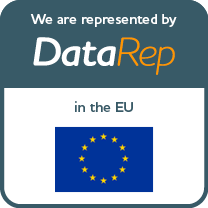Helping Unilever to build brands that work for everyone
The Background
In order to be able to better serve the needs of all its US customers, Unilever’s Beauty & Personal Care (BPC) division decided to build a much richer cross-category understanding of Polycultural America – wishing to understand in more detail the needs of specific cohorts, those groups of people with shared characteristics e.g. age, income, ethnicity etc, who frequently run the risk of being overlooked or underserved.
The Challenge
Unilever also identified that there was an opportunity to approach this task from the ground up, first extracting and then aggregating the wealth of relevant information already available to the business at the sub-category level. To undertake this task, Unilever needed a partner with a solid understanding of the BPC category, one who could work quickly and effectively across a range of different sub-categories and then use their knowledge and expertise to forge, fresh, genuinely actionable insight.
The Solution
To help with this challenge, Unilever BPC turned to The Forge.
During a rapid and focused resight we reviewed and analysed a huge quantity of research and data spanning 5 complete sub-categories – we used this analysis to forge a richer and more textured understanding across a number of pre-identified cohorts. Our focus wasn’t simply on collating the existing data, but rather the combination of different data sets that could then be used to help forge fresh insight – unpacking Polycultural America in order to deliver better products and services and change attitudes and behaviours across the entire BPC portfolio.

Why was this so important?
In BPC much of the existing category is focused on nourishing, moisturising or even enhancing a customers’ skin – in this context ethnicity becomes important because it is likely to influence specific personal care requirements – different skin & hair types are more or less susceptible to things like dryness, sun exposure and frizzing. Understanding these nuances and differences is key to delivering better care solutions.
The same applies to income levels; it might be tempting to be dismissive about customers with less to spend overall, but that doesn’t mean that there isn’t significant value to be found within this cohort – an increasing proportion of customers are having to watch their spending and those that find new ways of winning their attention and capturing or facilitating their spend will unlock a significant growth opportunity.
By better understanding the needs of specific cohorts you are by extension better able to serve all of your customers.
The Result
We helped Unilever understand that the customer cohorts under consideration were not in fact mutually exclusive and that appropriate use of the 6Ps remains key to effectively targeting them. We also identified the importance of being seen as a brand ‘for’ African Americans and Hispanics – being focused on the cultural and emotional needs in a deliberate way, not as an afterthought. We also highlighted the importance of developing Natural Propositions and the need for specific strategies to drive physical and mental availability.

Our work culminated in the creation of a new ‘Polycultural America BPC Bible’, showcasing and validating the cross-category opportunities available to the whole of BPC – in addition we made detailed recommendations for 4 specific cohorts: African Americans, Hispanics, Cash-strapped and Generation Z – illustrating how these groups could be better served and more effectively targeted. We were able to better serve these customers by consolidating the available data and forging fresh insight from everything that was being measured.
If you would like to learn more about how better insight could help you to unlock new audiences, then get in touch.
Photo credits: Photos by Jason Leung, Pierre Bamin, Jennifer Marquez on Unsplash


